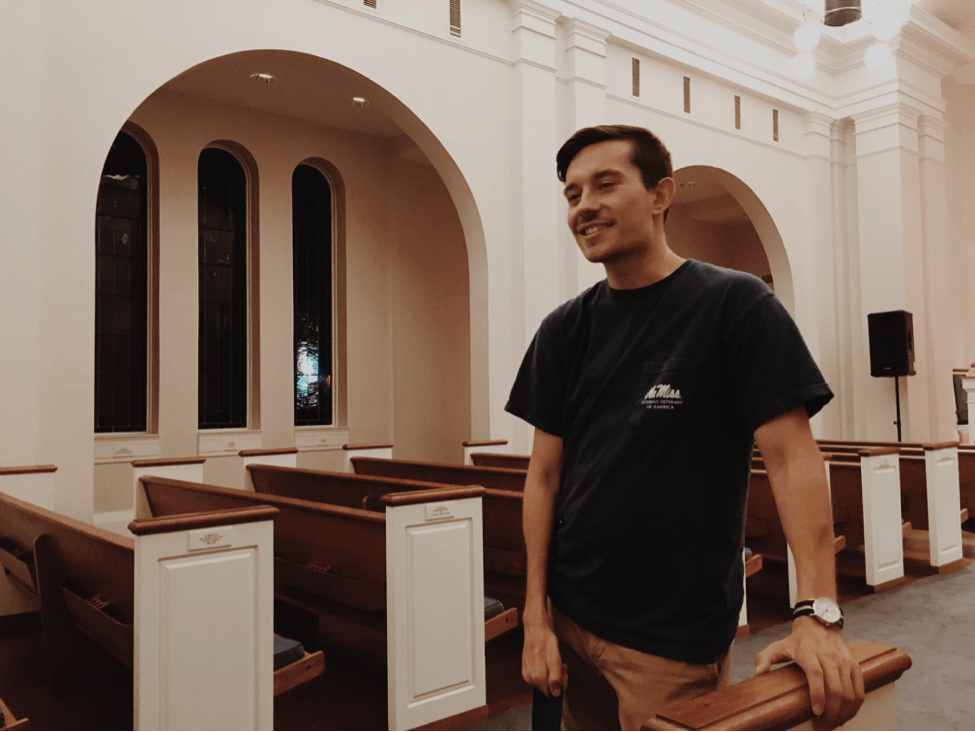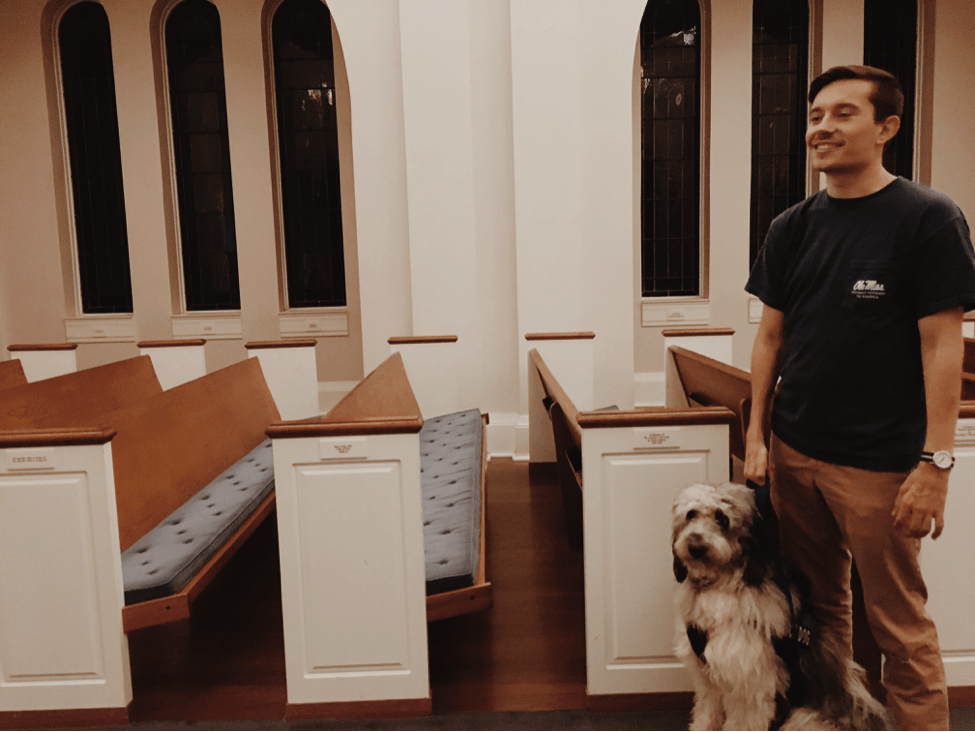“It was the biggest military training day of the year. I had been hiking with a rucksack up and down the mountain that morning; it was a Saturday. That night I had the stroke,” Derek Starnes, 23, recounted as the light from the coffee shop window poured in behind him.
Starnes, an Olive Branch native, joined the Air Force Academy as a freshman with dreams of becoming a pilot. Those dreams were derailed in an instant when an unforeseen spinal cord stroke left him paralyzed from the shoulders down.
From the beginning, Starnes chose a positive outlook. In the face of questions and uncertainty, Starnes began to accept his new reality, merely hours after it began.
“I just remember laying there, laughing,” he said laughing again as he remembered the odd looks he got from his nurses at the time. “I was unable to move but I just thought there’s nothing that I can do about it.”
But Starnes did do something about it. After two and a half months in two different hospitals and weeks of intensive physical and occupational therapy, Starnes began to walk again.
One year later, Starnes enrolled at Ole Miss and began to study accounting. Although close in proximity to his hometown, the university could not have been more different than his former life.
“It’s a different world,” he said comparing the Air Force Academy and Ole Miss. Starnes credits his membership in Alpha Tau Omega Fraternity for helping his new school become his home. “The Air Force is a big fraternity; it’s a brotherhood, so Greek life helped bring that back.”
Today, almost three years after his stroke, Starnes is now considered a veteran getting retirement benefits from the Air Force. With a forearm crutch perched beneath him, he walks slower than his classmates and he does so with an visible limp, but never without a smile. Over the years, Starnes has slowly regained control of his body. There are some muscles and fine motor skills, however, that may never return to full function.
“My perspective just on life and people around me definitely changed,” he leaned forward in his chair and smiled. “I feel like I can connect with people around me on different levels than able bodies can. I can perceive other people with disabilities and the help they need.”
“We quickly became friends,” Hamilton Moore, senior from Florence, Alabama and fellow member of ATO said. “Derek handles his disability with class and grace. He’s confident in himself and open to talk about it. He uses his condition to mentor to others, including myself, on how to be humble and kind in the face of adversity. He’s a leader in everything he does and he never lets his disability slow him down.”
Starnes still refers to himself as a fiercely independent individual; “If I could do it on my own I would definitely try, but [my disability] definitely taught me to depend on others and ask for help when needed.”
“There’s going to be things in your life you have no control over, things you never envisioned happening but there’s definitely always ways to get through it to allow others to be there when you need them,” he said.
“While Derek acknowledges his disability and the ways it’s changed his life, he doesn’t let it stop him,” Moore said. “He lives his life as an example we should all strive for. His attitude is one of perseverance, humility, and faith.”
“You know, they still don’t know to this day,” Starnes answered when asked what caused the stroke. But for him, his disability is not a crutch, or something that holds him back. It’s a part of his life that has changed him from the outside in.


By Amy Rosenthal; acrosent@go.olemiss.edu
